 The global economic crisis and a kind of pause of everyday life as we know it, caused by the global coronavirus pandemic, represent an opportunity to redefine our understanding of communities and solidarity. In order to define new business models and treatment of social issues, it is up to us to listen carefully to those for whom the association is neither the end nor the means, but the purpose of existence.
The global economic crisis and a kind of pause of everyday life as we know it, caused by the global coronavirus pandemic, represent an opportunity to redefine our understanding of communities and solidarity. In order to define new business models and treatment of social issues, it is up to us to listen carefully to those for whom the association is neither the end nor the means, but the purpose of existence.
Some of them are farmers – members of cooperatives from five districts located in the south of Serbia (Nišava, Toplica, Pirot, Pčinj and Jablanica), led by the Union of Cooperatives of Southern Serbia, who during the pandemic, offered their fellow citizens their time, knowledge and products aiming to overcome the new challenges together. Numerous and diverse initiatives of cooperatives can be divided into three categories: services related to the cultivation of land, disinfection of public spaces, and supplying and preparing the necessary packages for the vulnerable. Each of these actions aimed to mitigate the effects caused by the suspension of daily activities of the major portion of the population, especially the population in rural areas. To understand the scale of these needs, over 42.07 % of people living in Niš live in 70 neighbouring villages. With regard to the most vulnerable people in this part of Serbia, people older than 70, during the crisis caused by the coronavirus, members of cooperatives worked on disinfecting the streets, providing meals and basic weekly food supplies, and on ensuring that their long-term existence related to land cultivation was not called into question.
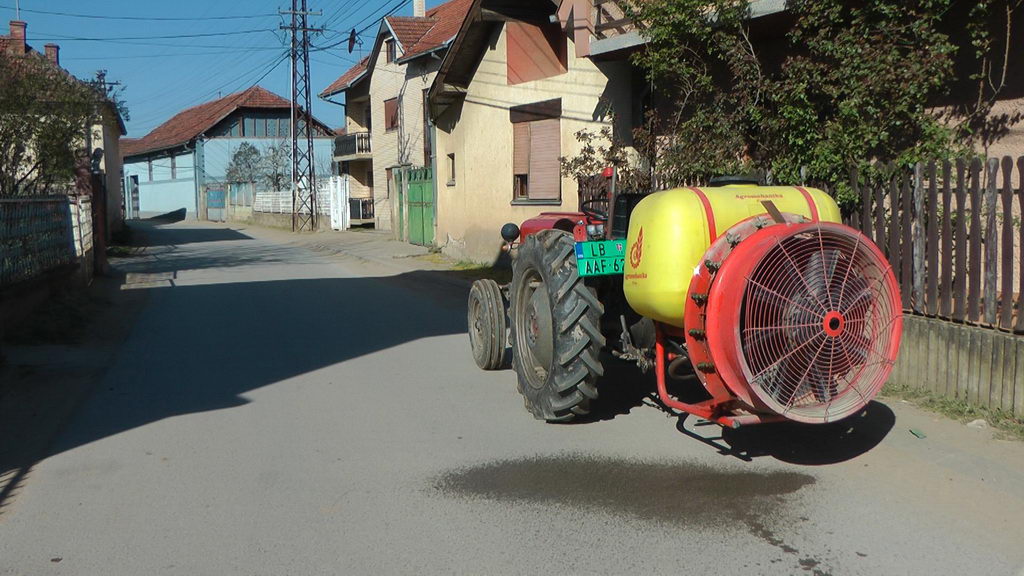 During the two-month-long state of emergency, many members of cooperatives tried to ensure that this crisis was not disastrous for their fellow citizens, especially those who are in the so-called “institutional vacuum”, agricultural farms made up of people who are older than seventy. Unable to leave their homes and faced with the risk of not being able to cultivate the land on which they depend existentially, they were almost doomed to have a bad outcome. However, Vladimir Nikolić from Donji Matejevac, a farmer and member of a cooperative, who cultivates over 4 hectares of planted fruit, stated that helping one another was the way of life in those parts: “That is how we live here, we all know each other and we always help one another.” Now that the situation is apparently starting to stabilise, the cooperatives are continuing with their solidarity activities, with the idea of providing long-term support to these almost invisible households.
During the two-month-long state of emergency, many members of cooperatives tried to ensure that this crisis was not disastrous for their fellow citizens, especially those who are in the so-called “institutional vacuum”, agricultural farms made up of people who are older than seventy. Unable to leave their homes and faced with the risk of not being able to cultivate the land on which they depend existentially, they were almost doomed to have a bad outcome. However, Vladimir Nikolić from Donji Matejevac, a farmer and member of a cooperative, who cultivates over 4 hectares of planted fruit, stated that helping one another was the way of life in those parts: “That is how we live here, we all know each other and we always help one another.” Now that the situation is apparently starting to stabilise, the cooperatives are continuing with their solidarity activities, with the idea of providing long-term support to these almost invisible households.
Vladimir is just one of the members of cooperatives, who responded to the invitation of the Union of Cooperatives of Southern Serbia. Members of the cooperative Agro Prima Jug from Bošnjace, a cooperative whose annual export of lettuce and fruit is worth EUR 1 million, provided services of land cultivation to elderly citizens and disinfected the streets aiming to prevent the possibility of infection in public spaces. Members of the Popovac vegetable growers cooperative, from the Niš Cluster Centre, offered to supply the Clinical Centre Niš with vegetables during the state of emergency. The Association of Single Mothers is just one of the addresses to which the members of the Union of Cooperatives of Southern Serbia delivered the packages of organic fruits and vegetables and other necessary groceries, which included juices made by the New Economy cooperative from Lipovac, near Doljevac.
The head of the Union is Dejan Mitić, the president of the Association for Local Development of Kamenica, an innovator who in his work, among other things, advocates the development and improvement of cooperative practices in Serbia.
“Apart from families, cooperatives are the most natural form of association,” says Dejan, describing how important it was that efforts and people were recognised as social entrepreneurs by law and other actors at the local and wider social level. Talking to Dejan about the cooperative practice of association, it became clear that members of cooperatives contribute with their efforts to the diversification of the very concept of family outside the monolithic framework of social norms. Their initiatives and practices can teach us how “chosen families” contribute to the improvement of the quality of life of all community members. While describing how he was not at all surprised by the readiness to help displayed by the members of cooperatives, Dejan reminded us that cooperatives in those areas had a tradition that was two centuries long. According to him, now, when we are looking for new models of association, almost 1,700 cooperatives in Serbia stand out as the knowledge transfer chain in agribusiness and bottom-up leaders in promoting modern business practices, such as fair trade, employment of vulnerable social groups, and working in line with international standards of environmental protection.
Following the existing practices of association and cooperation of all local actors, during the state of emergency, members of cooperatives worked closely with representatives of municipal and city crisis headquarters, and they stated that the biggest obstacle in providing even more significant assistance had been the unregulated state of local procedures. However, the engagement of these people – men and women, young and old, from villages with less than a thousand and places with only a few thousand inhabitants, perhaps can be best described by an anecdote of one of the members of the cooperative Agro Južna Morava, Predrag Peđa Cvetković a cardiothoracic surgeon, who is involved in the production of popcorn. After the call for participation had been announced, this member of a cooperative, called Dejan and exclaimed: “Don’t you dare forget about me!” How these people see life and togetherness can be best understood in the fact that this member was, at that time, fighting the coronavirus himself, after the test showed that he was positive.
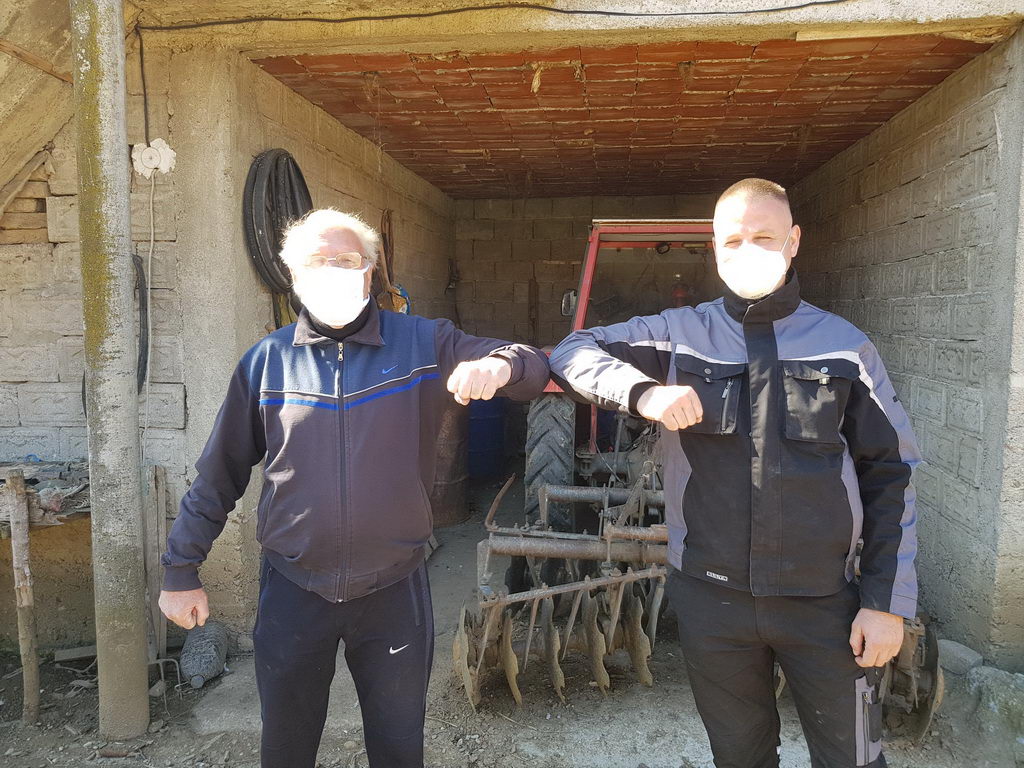 Given this global crisis and its long-term effects that we have yet to discover in our daily lives, leadership based on solidarity imposes itself as the set of practices and values on which the future of all, especially the most vulnerable, will depend.
Given this global crisis and its long-term effects that we have yet to discover in our daily lives, leadership based on solidarity imposes itself as the set of practices and values on which the future of all, especially the most vulnerable, will depend.
“It is important for me that these generous people are recognised by the state as partners”, Dejan pointed out, describing cooperatives and people who, through their engagement, were drawing a thin line between socially responsible business and a way of life that would ensure the survival of many, and allow everyone else to live differently and create together.
 Government of the Republic of Serbia
Government of the Republic of Serbia



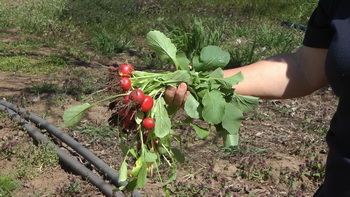
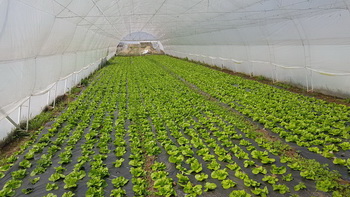
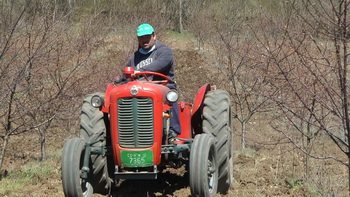
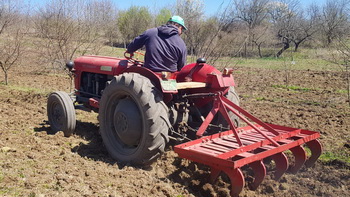












 pdf [271 KB]
pdf [271 KB]
Leave a Comment